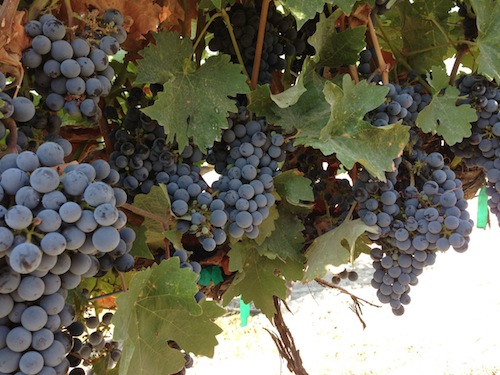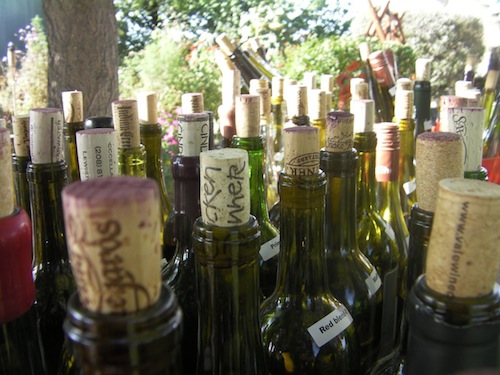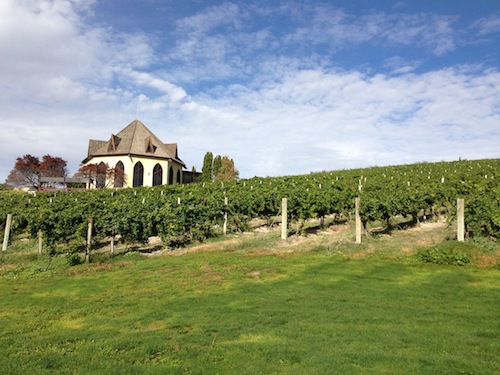
BOISE, Idaho – According to a new economic impact report, the Gem State’s wine industry has more than doubled in five years.
“This is terrific,” said Moya Dolsby, executive director of the Idaho Wine Commission.
According to the new report, which was released Tuesday, the Idaho wine industry is worth $169.3 million per year to the state’s bottom line. This is up from $73 million in 2008.
The new study was conducted by Stonebridge Research Group in St. Helena, Calif., the same organization that has done economic impact studies for both the Washington and New York state wine industries. The 2008 Idaho study was conducted by Boise State University, Dolsby said.
Idaho wine by the numbers

Here are a few highlights from the report, in addition to the overall economic impact:
- Cases of wine produced in 2013: 214,140
- Number of wineries: 50 (up from 32 in 2008)
- Vineyard acreage: 1,290
- Tons harvested in 2013: 2,908
- Full-time equivalent jobs: 1,226
- Annual wages paid: $39.7 million
- Annual number of winery visits: 175,000
- State and local taxes paid: $10.5 million
- Federal taxes paid: $8.9 million
- Retail value of wine produced and sold in Idaho: $20.5 million
While all of these numbers are small compared with such wine-producing neighbors as Washington and Oregon, Dolsby said this is a great position from which to build.
“It’s hard to compare with Washington” and its $10 billion-per-year economic impact, Dolsby said. “But it makes us happy that the numbers are so positive.”
Dolsby said the timing of the report’s release is excellent because the Idaho Legislative session is just beginning, and it’s important for more state lawmakers to understand the opportunities that exist with the wine industry.
“We’ll use this a lot with the state Legislature so we can show that the wine industry is here to stay,” she said.
Precept happy to be big part of Idaho wine

The state’s largest producer – by far – is Seattle-based Precept Wine, which owns Idaho’s largest wineries: Ste. Chapelle and Sawtooth. Mike Williamson, chief operating officer for Precept, told Great Northwest Wine that he is thrilled with the numbers he sees.
“From the standpoint of growth, this is good for Idaho,” he said. “And it’s good for us.”
Winemakers LLC, also owned by the family that owns Precept, has the state’s largest acreage in Skyline Vineyard near the city of Nampa, and it supplies many of the state’s wineries with high-quality grapes.
Dolsby said vineyards are the key to growing Idaho wine to its full potential.
“Our greatest need is vineyards,” she said. “It’s going to be difficult for wineries to continue to grow without more fruit.”
Perhaps the most jarring number facing Dolsby, Precept and the Idaho wine industry is its market share inside the state, which is 8.52 percent. This means that for every 100 bottles of wine sold in Idaho, fewer than nine are made in Idaho.
By comparison, Washington enjoys a market share of about 40 percent. However, as recently as 15 years ago, Washington’s market share was just 18 percent and Oregon’s was where Idaho now stands.
Dolsby and Williamson view this as an opportunity. While Ste. Chapelle and Sawtooth do have national distribution, most of the rest of Idaho’s wineries sell the vast majority of their wines inside Idaho. So to them, this means Idaho has a thirst for wine that could be slaked by local products rather than wines made in Washington, California and abroad.
Dolsby plans to use these numbers as recruiting tools to get more investments in Idaho wine country – both in vineyards and wineries. She pointed out land in the Snake River Valley’s high-altitude region is less expensive and more plentiful than other West Coast states – and there’s no shortage of water.
Competing with potatoes

The juggernaut of Idaho agriculture continues to be those famous potatoes, but Dolsby said other crops such as wheat and barley also are big. That doesn’t deter her, however. Rather, she sees it as another opportunity.
Williamson agreed, pointing out that anyone traveling around the world will hear all about Washington’s famous apples.
“They’ve done a good job of marketing apples,” he said. “Idaho potatoes are kind of like Washington apples. But now we’re hearing a lot more about Washington wine.”
That’s good news to Dolsby, who grew up in the Seattle area, graduated from the University of Washington and worked at the Washington State Wine Commission for five years before taking over the Idaho Wine Commission in 2008.
“There’s so much potential,” she said.

Leave a Reply